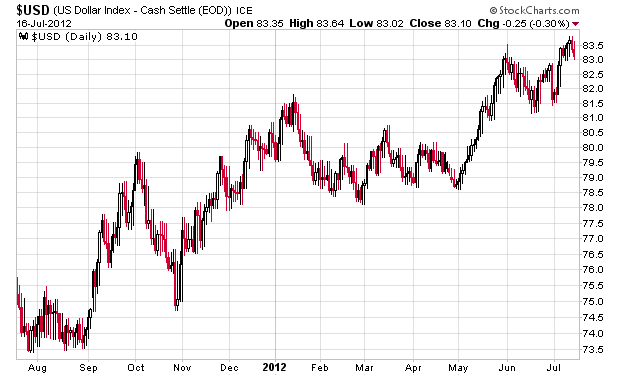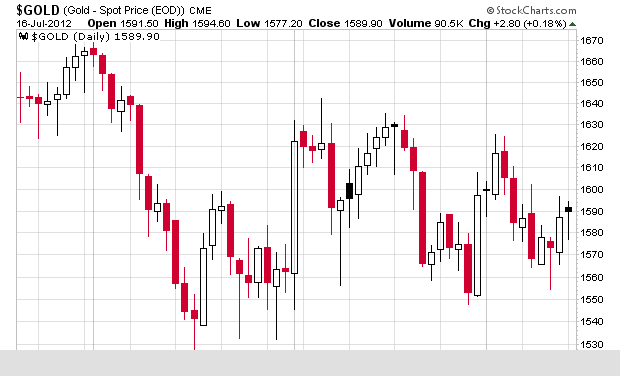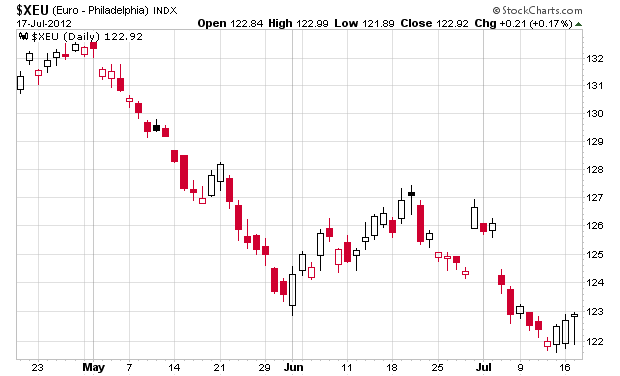
The first chart below shows the strong US dollar. The US dollar is the mirror twin of the euro. As a rule, a strong dollar works against gold. The stronger the dollar, the fewer dollars it requires to buy an ounce of gold; and the opposite is true, the weaker the euro, the more euros it takes to buy an ounce of gold. This is the reason my pen-pal, Dennis Gartman, buys his gold in euro terms.

Below we see gold, and what is so interesting is that gold is holding above support at 1535 in the face of the strong dollar. This is obviously good action in terms of gold.

Just for the hell of it, I’m showing a daily chart of the euro. I think it’s over-priced at 1.22, and I think it’s going to par against the US dollar. I saw enough of Europe during WWII, and with the euro at 1.23, I’m staying in La Jolla where I can still get a meal for less than six bucks. The euro came out at 87 cents, which is what I think it’s really worth.

Ed Note: Richard Russell of Dow Theory Letters is bearish the US Stock Market based on the Dow Theory. His advice to investors right now it that: “This is the time to cut back on needless expenses — get rid of all the debt you can, and prepare for tough times”.
Russell began publishing Dow Theory Letters in 1958, and he has been writing the Letters ever since (never once having skipped a Letter). Dow Theory Letters is the oldest service continuously written by one person in the business. One of the favorite features of the Letter is Russell’s daily Primary Trend Index (PTI), which is a proprietary index which has been included in the Letters since 1971. The PTI has been an amazingly accurate and useful guide to the trend of the market, and it often actually differs with Russell’s opinions. But Russell always defers to his PTI. Says Russell, “The PTI is a lot smarter than I am. It’s a great ego-deflator, as far as I’m concerned, and I’ve learned never to fight it.”












